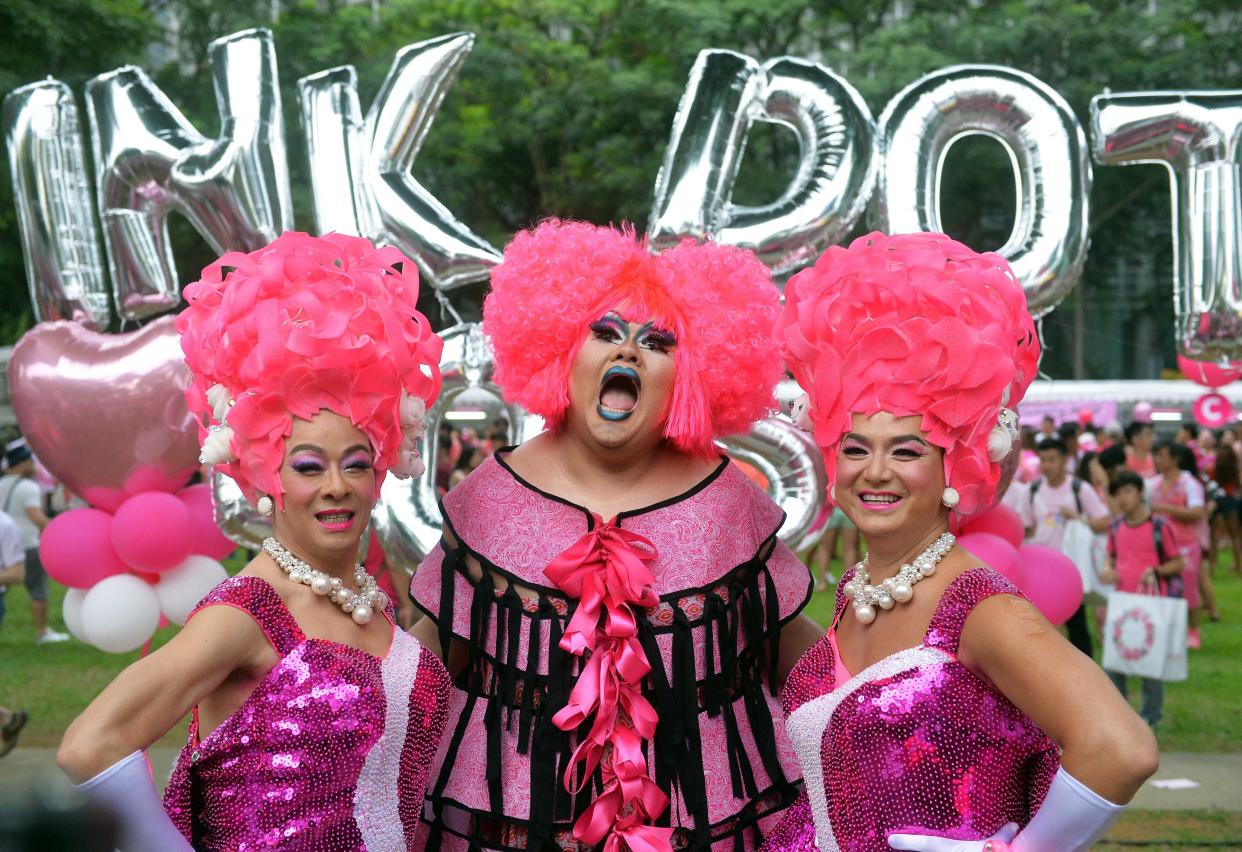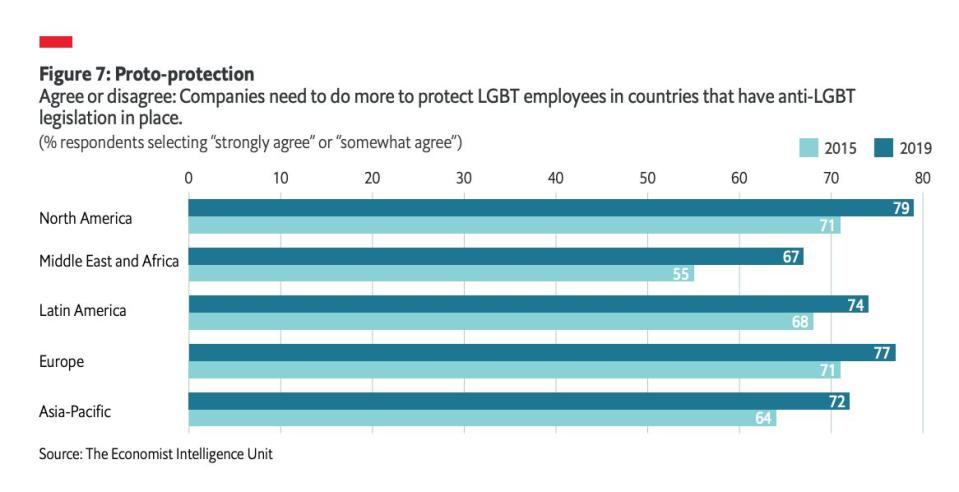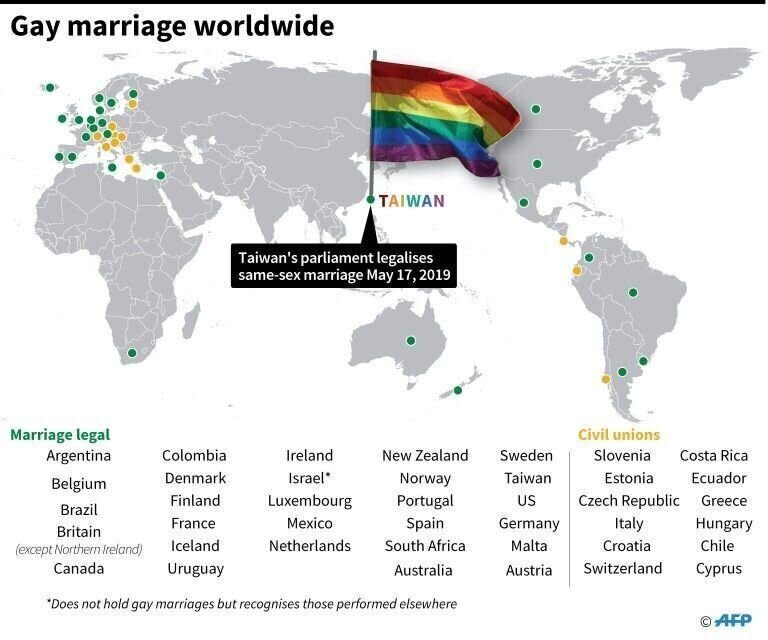Over 4 in 10 of those in Asia-Pacific feel same-sex marriage will spread across region: survey

SINGAPORE — More than four in 10 respondents in Asia-Pacific agree that legislation of same-sex marriage will inevitably spread across the region, according to a survey by the Economist Intelligence Unit (EIU).
Three in 10 disagree with the sentiment.
The findings, which were shared on Wednesday (29 May), surveyed 1,901 respondents around the world in April, including 339 from 21 Asian countries or territories. Thirty-three respondents were from Singapore.
Over seven in 10 respondents in Asia Pacific also said that attitudes towards the lesbian, gay, bisexual, transgender and queer (LGBTQ) individuals are more open now than it was three years ago.
Among those who believe that the overall climate for LGBTQ diversity and inclusion in their country has become more open over the past three years, 38 per cent pointed it to change in policies and laws relating to LGBTQ people.
36 per cent attributed it to coverage of LGBTQ issues in mainstream media, while 35 per cent attributed it to broader awareness of minority and/or gender rights.

‘Significant hurdles’ to full equality
However, the Barclays-backed report stressed that “significant hurdles stand in the way of full equality”.
“Notably, over half of Asia Pacific executives who believe the space for LGBTQ rights has shrunk in the past three years chose anti-LGBTQ advocacy by religious institutions as the top underlying reason,” it added.
The report is the fourth in an annual series of EIU studies addressing the business and economic case for global LGBTQ diversity and inclusion. It focuses on the situation in Asia-Pacific and what progress has been made compared to the first survey fielded in 2015.
While the findings “reinforce Asia's forward momentum on LGBTQ rights” in light of Taiwan's recent legalisation of marriage equality, more action needs to be taken, stressed Michael Gold, EIC’s senior editor of thought leadership and the author of the report.
“Businesses have a crucial role to play, alongside governments, courts, civil society and the general public,” said Gold.
72 per cent of Asia-Pacific respondents agree with the sentiment that companies need to do more to protect LGBTQ employees in countries that have anti-LGBTQ legislation in place, up from 64 per cent in 2015.

LGBTQ situation around Asia
Taiwan made history this month when it became the first jurisdiction in Asia to legalise gay marriage.
More than 500 same-sex couples registered their relationships last Friday, according to local authorities.
In response, the Chinese government signalled on Wednesday that it would not follow Taiwan's example on same-sex marriage.
In Singapore, sex between men is illegal under Section 377A of the Penal Code although it is rarely enforced.
A spokesperson for Pink Dot Singapore, the nation’s annual pride event, said that this year’s campaign aims to show that discrimination encountered by the community in Singapore is more than an “unenforced 377A law in the books”.
It is also “inadequate counselling in schools, inability to register LGBTQ societies, and censorship in mainstream media”, said Clement Tan at its launch event earlier this month.

Related Singapore stories:
China signals won't follow Taiwan in allowing same-sex marriage
Li Huanwu, grandson of Lee Kuan Yew, marries male partner in South Africa
Pink Dot organisers urge Singaporeans to make stand #AgainstDiscrimination
Most Singapore residents agree religious views shouldn't influence the law: survey



